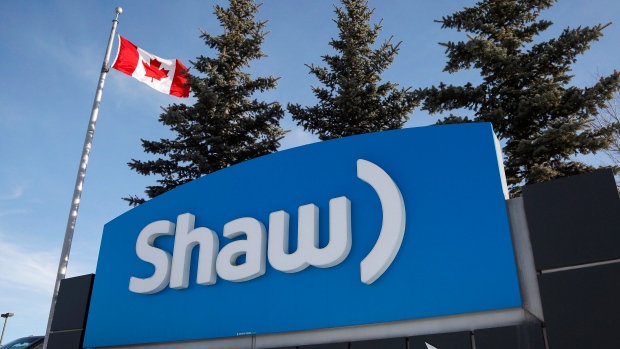Jun 27, 2019
Shaw reports Q3 profit, less drag from Corus stake; Freedom Mobile grows
The Canadian Press

CALGARY -- Shaw's Freedom Mobile wireless service added nearly 62,000 subscribers in its latest quarter, and improved customer retention, showing it's providing real competition to Canada's Big Three carriers.
The Calgary-based mobile company -- which operates wireless networks only in Ontario, Alberta and British Columbia -- remains far smaller than any of its national rivals and retains a newcomer's feistiness.
In fact, Shaw Communications Inc. (SJRb.TO) claimed Thursday that Freedom's rivals have been forced to adjust their pricing strategy in response to its Big Gig plans.
The Big Gig plans offer unlimited gigabytes of data for a fixed price, although instead of charging overage fees Freedom slows the data transfer speeds after the monthly limit is exceeded.
Toronto-based Rogers Communications was the first of the Big Three to adopt a similar strategy, with new Infinite plans that went into effect on a permanent basis on June 13.
Bell and Telus quickly responded with short-term offers that were similar but not exact copies of Rogers or Freedom.
Although none of the Big Three credits Freedom for their moves, Shaw executives proclaimed during their third-quarter conference call on Thursday that the upstart has fundamentally changed the competitive landscape.
"It's now absolutely clear that Canadian wireless prices are coming down and that Freedom Mobile is the catalyst for this change," chief executive Brad Shaw said.
"We have worked hard to reset Canadians' expectations of their wireless providers and the competition is learning to follow our lead."
He noted Freedom has also halted the erosion of its pre-paid subscriber base, which fell by 16,900 in its fiscal second quarter, while adding 61,000 postpaid subscribers. Postpaid churn also fell to a Freedom record low of 1.18 per cent.
Revenue from wireless services was $178 million (up 22 per cent from a year ago) while revenue from equipment sales fell by nine per cent to $73 million because more customers used their own devices.
Shaw's overall revenue for the three months ended May 31 grew to $1.32 billion from $1.29 billion last year -- with the bulk of that from cable and internet wireline services in Alberta and British Columbia.
Its net income for the quarter was 44 cents per share, which compared with a year-earlier loss of $99 million or 20 cents per share.
Last year's third-quarter loss included a writedown related to Shaw's investment in Corus, which acquired Global Television and other media assets from Shaw several years ago in return for cash and shares.
Shaw sold its stake in Corus for net proceeds of $526 million at the end of May in a move that resulted in a $109 million loss on the investment.






